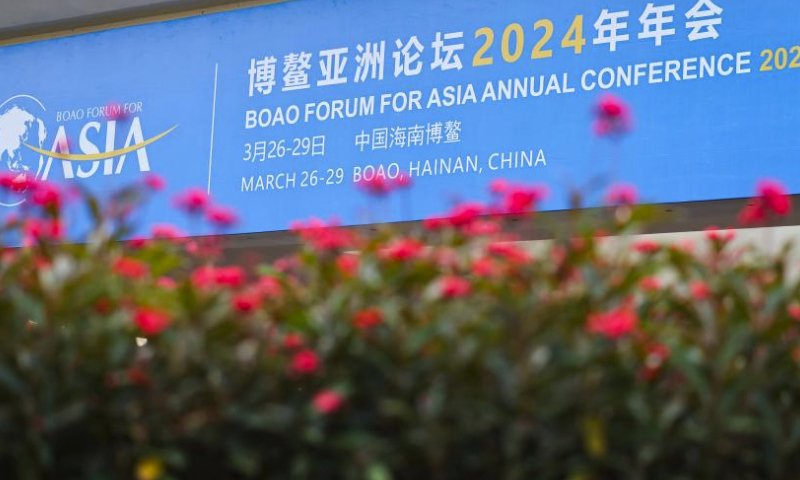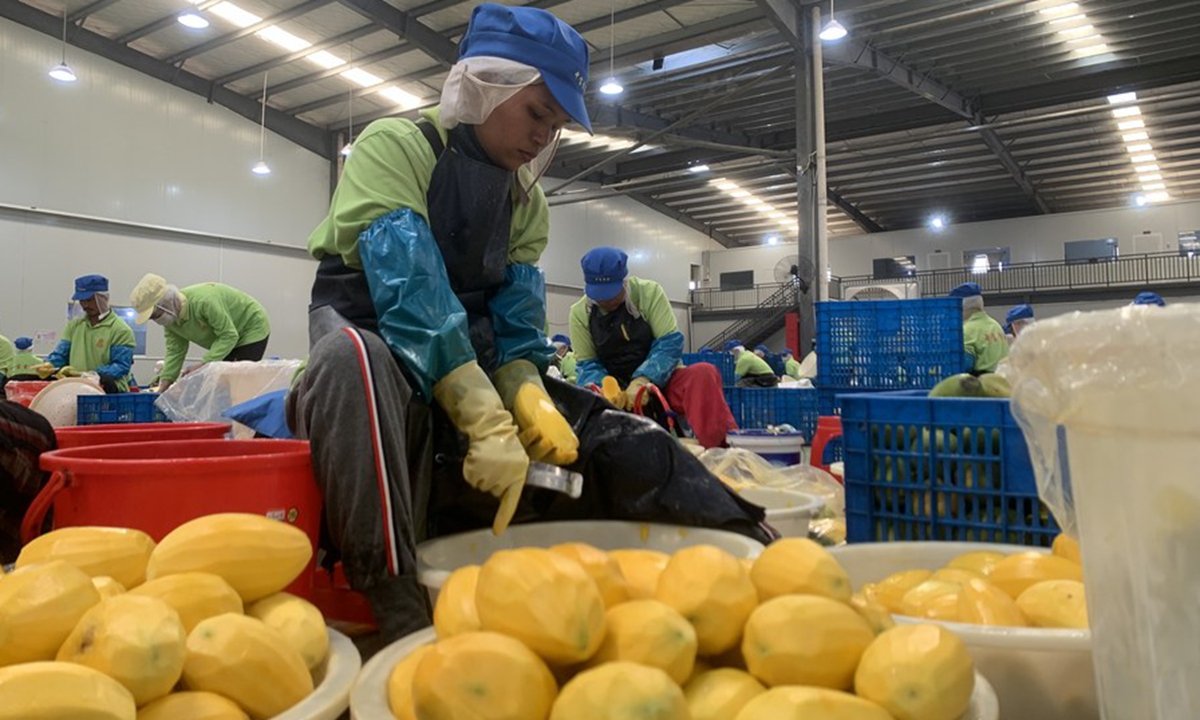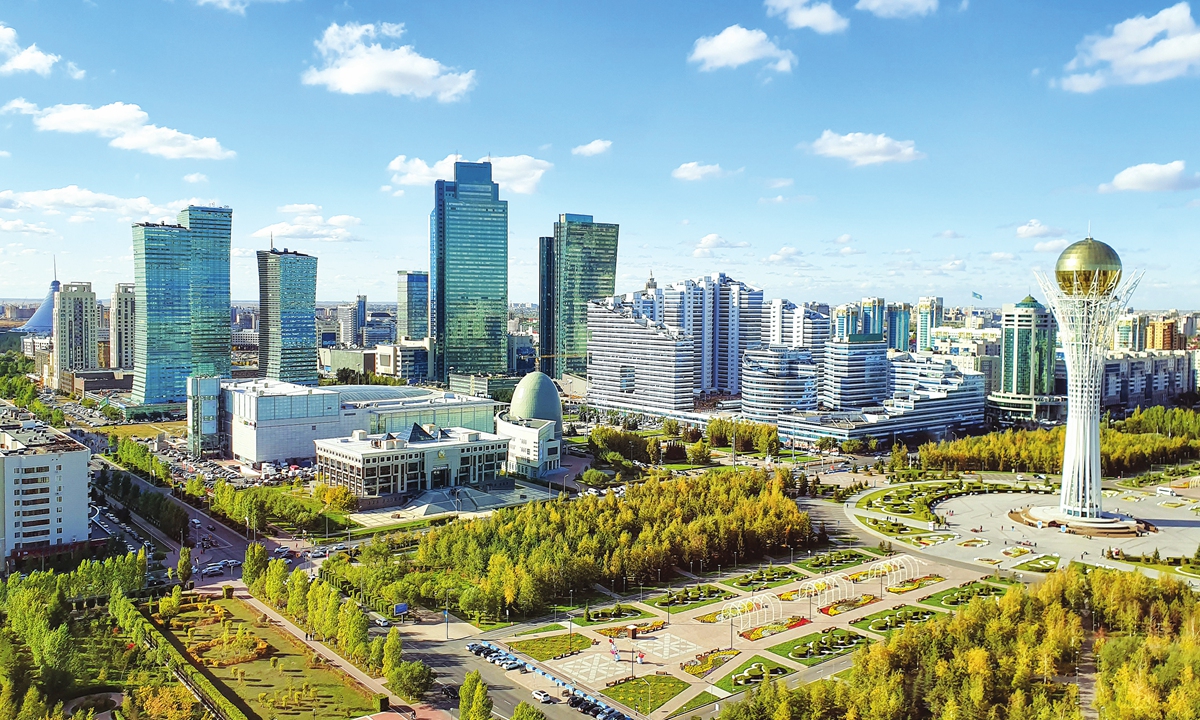Exclusive: SCO a proof of different countries cooperating on a joint solution to solve common challenges: former SCO secretary-general
Kazakhstan to enhance cooperation with China, other SCO members: experts
Editor's Note:
The Shanghai Cooperation Organization (SCO) summit will take place in Astana, Kazakhstan in early July. After two decades of joint efforts, the SCO has been successfully built into a security bastion, a bridge of cooperation, and a constructive force in the region. The meeting is taking place in a global environment marked by heightened geopolitical uncertainty and multiple pressing global challenges that require a joint solution. Global Times reporters Li Xuanmin (GT) and Xing Xiaojing recently conducted an exclusive interview with Bolat Nurgaliyev (Nurgaliyev), who served as SCO secretary-general from 2007 to 2009 and now works as the chairman of the Board of the Foreign Policy Research Institute under the Ministry of Foreign Affairs of the Republic of Kazakhstan. Nurgaliyev highlighted the SCO's role in demonstrating that countries with different political systems and models of economic development can cooperate in harmony.
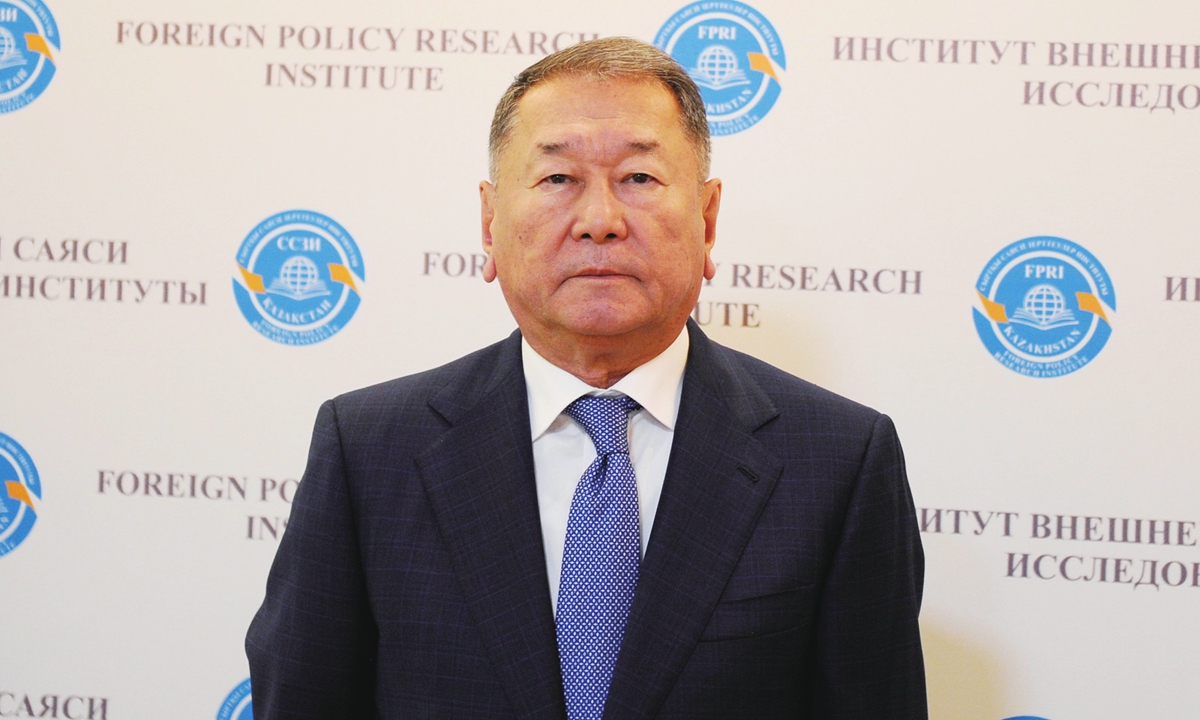
GT: The SCO summit will take place in Astana, Kazakhstan in July. What are your expectations for the upcoming meeting, and how will the meeting contribute to regional security and stability?
Nurgaliyev: Each annual SCO summit is a highlight of events and collective efforts undertaken throughout the 12 months since the previous meeting of the heads of state, providing opportunity to have a frank discussion of pressing issues on international and regional agenda, exchange assessments on the implementation of priorities agreed upon among member states and determine goals for a forthcoming period.
For Kazakhstan as a host country of the 2024 SCO summit, it's also a chance to reciprocate the hospitality provided by previous chairmanships, and report on the progress made in the list of priorities which were presented at the summit in New Delhi in 2023. Understandably, one year is too short a time for full implementation of all priorities, that is why, as I expect, the Kazakh side will suggest to its partners to remain focused on the issues that really matter, such as strengthening partnership in advancing economic and humanitarian spheres, promoting innovative technologies, and facilitating digitalization of social and financial sectors.
GT: China and Kazakhstan are both founding members of the SCO. From your perspective, what are the contributions that China and Kazakhstan have made to the organization? And what is the significance of SCO in promoting communication and cooperation?
Nurgaliyev: One important thing to mention is that since its establishment as an international organization, the SCO, unlike some other similar and comparable institutions, has never failed to hold its annual summit. It is a testimony to the SCO's relevance in the atmosphere of current global turbulence. The SCO serves as a proof of possibility that countries - with different political, military, economic and technological potential, different systems of state governance and different models of economic development - can cooperate quite harmonically, reconcile their sometimes diverging interests and work out a joint approach to dealing with common challenges and risks.
China and Kazakhstan are always sticking to the principles of constructivism and pragmatism, which was evident to me during my tenure as the Secretary General of the SCO, especially when the member states representatives were drafting strategic documents. Definitely, there were a lot of disputes over the language of this or that provision, parties insisting on their version of interpretation of international and regional problems, but China and Kazakhstan were voices of reason all the time and provided formulas for making certain compromises for the sake of creating a healthy atmosphere. I am sure that positive contribution of both China and Kazakhstan will ensure the further enhancement of the SCO international standing.
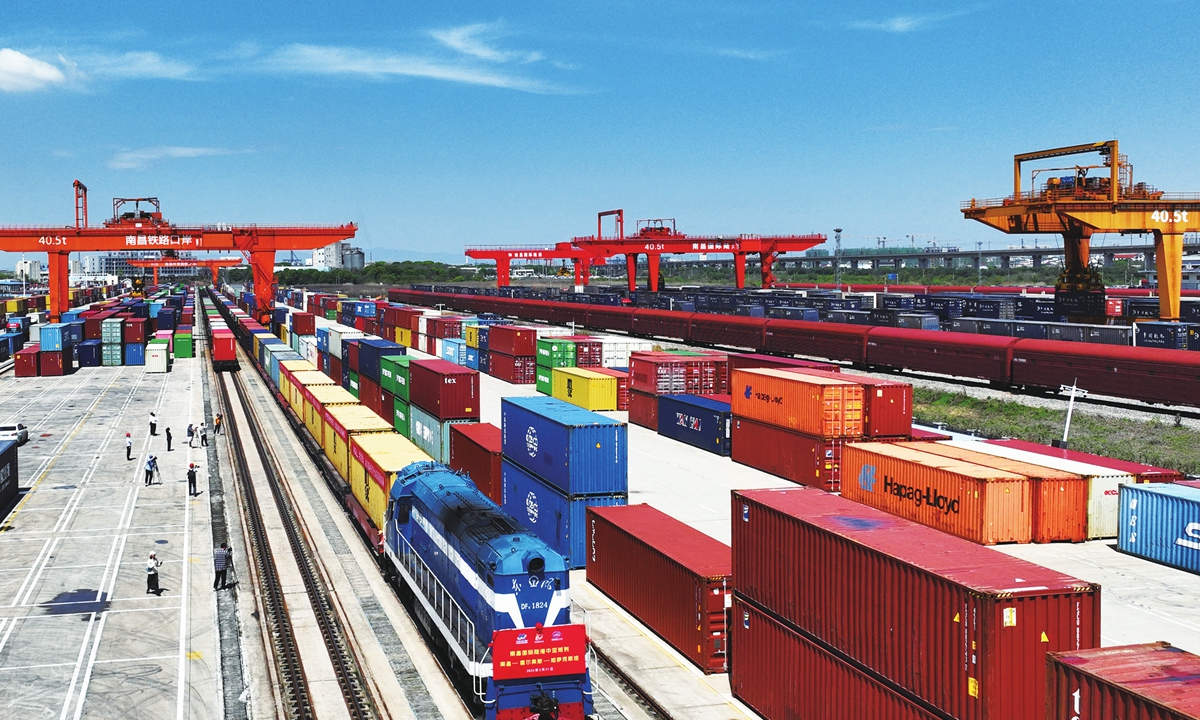
GT: President Kassym-Jomart Tokayev of Kazakhstan has visited China several times since early 2023. How do you view current China-Kazakhstan relationship?
Nurgaliyev: Kazakhstan's bilateral relations with China are of exceptional significance within the whole scope of Kazakhstan's foreign policy. We cherish good-neighborly cooperation and the overall attitude of our southern neighbor, China, to Kazakhstan from the early years of our independence. We appreciate China's unwavering support of Kazakhstan's state sovereignty and territorial integrity as well as economic modernization of our country.
China and Kazakhstan have agreed to jointly build bilateral relations in the next golden 30 years. Frequent exchange of visits at the highest level, during which our leaders reach important agreements and coordinate political strategies, should be viewed as exemplary, as they reflect the top level of mutual trust and good will.
Put political and economic aspects of bilateral relations aside, I also would like to underline the priority of people-to-people exchanges. Since 2023, citizens of Kazakhstan and China don't need visas to travel in both directions. This decision will be a great promoter of tourist, business, educational exchanges between the two countries and a boost in cultural cooperation.
GT: In a global environment of heightened geopolitical clashes, in which areas do China and Kazakhstan share consensus and a long-term vision?
Nurgaliyev: Both countries have a shared vision of dire necessity to avoid further toxification of international relations, as well as an urgency to return to normalcy in international ties on the basis of mutual accommodation of legitimate interests of every member of the international community. After all, we share the same destiny, live on one planet and face the same challenges. Global climate change, degradation of environment, growing problems of poverty in some parts of the world, scarcity of water resources, fragility of international system of rapid response to emergency situations revealed by COVID-19 pandemic, interstate conflicts - all these calls for immediate mobilization of efforts of all peace-loving countries. I am confident that the partnership of Beijing and Astana will play constructive role in this process.
GT: How do you currently evaluate economic and trade relations between China and Kazakhstan?
Nurgaliyev: Trade between Kazakhstan and China is demonstrating sustainable growth, and the figure for 2023 is an all period record of nearly $30 billion. There is still a need to balance it by increasing export of the Kazakh goods to the Chinese consumers and we hope that the current year will be marked by certain positive trend in this regard. China is also among the first five top investors in the Kazakh economy with investment in different sectors: machine building, agriculture, industrial and urban construction, mining, energy in both traditional and renewable fronts, communication as well as logistical infrastructure.
China and Kazakhstan also share a long border and Kazakhstan's strategic location at the East-West crossroads provides ample opportunities for using our territory for the transit of the Chinese goods to multiple directions. Astana and Beijing signed the Agreement on the Joint Development of the Trans-Caspian International Transport Route (TITR), or the so-called Middle corridor. Once fully operational, the Middle corridor will be the most convenient, reliable and the shortest way for cargo shipment between China and Europe through Kazakhstan.
GT: Kazakhstan is the birthplace of the Belt and Road Initiative (BRI). How do you view the significance of the initiative for Kazakhstan and Central Asia?
Nurgaliyev: In my country we firmly support the grand vision of the BRI and have every intention to participate in its further implementation. For those abroad who express skepticism over the BRI effectiveness, I recommend to compare the geographic maps of Central Asia prior to the BRI with up-to-date maps of the region: new railroads, highways, bridges, port and cargo terminals, gas and oil pipelines, electric power stations, high-tech agricultural farms, which all point to dramatic transformation and huge leaps in the 21st century. Constructive role of the BRI in social and economic advancement of Central Asian economies including Kazakhstan is undeniable, and is highly appreciated by all the neighboring countries.
The Shanghai Cooperation Organization (SCO) summit will take place in Astana, Kazakhstan in early July. After two decades of joint efforts, the SCO has been successfully built into a security bastion, a bridge of cooperation, and a constructive force in the region. The meeting is taking place in a global environment marked by heightened geopolitical uncertainty and multiple pressing global challenges that require a joint solution. Global Times reporters Li Xuanmin (GT) and Xing Xiaojing recently conducted an exclusive interview with Bolat Nurgaliyev (Nurgaliyev), who served as SCO secretary-general from 2007 to 2009 and now works as the chairman of the Board of the Foreign Policy Research Institute under the Ministry of Foreign Affairs of the Republic of Kazakhstan. Nurgaliyev highlighted the SCO's role in demonstrating that countries with different political systems and models of economic development can cooperate in harmony.

Bolat Nurgaliyev Photo: Courtesy of Foreign Policy Research Institute under the Ministry of Foreign Affairs of the Republic of Kazakhstan
GT: The SCO summit will take place in Astana, Kazakhstan in July. What are your expectations for the upcoming meeting, and how will the meeting contribute to regional security and stability?
Nurgaliyev: Each annual SCO summit is a highlight of events and collective efforts undertaken throughout the 12 months since the previous meeting of the heads of state, providing opportunity to have a frank discussion of pressing issues on international and regional agenda, exchange assessments on the implementation of priorities agreed upon among member states and determine goals for a forthcoming period.
For Kazakhstan as a host country of the 2024 SCO summit, it's also a chance to reciprocate the hospitality provided by previous chairmanships, and report on the progress made in the list of priorities which were presented at the summit in New Delhi in 2023. Understandably, one year is too short a time for full implementation of all priorities, that is why, as I expect, the Kazakh side will suggest to its partners to remain focused on the issues that really matter, such as strengthening partnership in advancing economic and humanitarian spheres, promoting innovative technologies, and facilitating digitalization of social and financial sectors.
GT: China and Kazakhstan are both founding members of the SCO. From your perspective, what are the contributions that China and Kazakhstan have made to the organization? And what is the significance of SCO in promoting communication and cooperation?
Nurgaliyev: One important thing to mention is that since its establishment as an international organization, the SCO, unlike some other similar and comparable institutions, has never failed to hold its annual summit. It is a testimony to the SCO's relevance in the atmosphere of current global turbulence. The SCO serves as a proof of possibility that countries - with different political, military, economic and technological potential, different systems of state governance and different models of economic development - can cooperate quite harmonically, reconcile their sometimes diverging interests and work out a joint approach to dealing with common challenges and risks.
China and Kazakhstan are always sticking to the principles of constructivism and pragmatism, which was evident to me during my tenure as the Secretary General of the SCO, especially when the member states representatives were drafting strategic documents. Definitely, there were a lot of disputes over the language of this or that provision, parties insisting on their version of interpretation of international and regional problems, but China and Kazakhstan were voices of reason all the time and provided formulas for making certain compromises for the sake of creating a healthy atmosphere. I am sure that positive contribution of both China and Kazakhstan will ensure the further enhancement of the SCO international standing.

A freight train loaded with household goods such as refrigerators and coffee makers, sets off from Nanchang, East China's Jiangxi Province on March 31, 2024, heading to Central Asian countries. Photo: cnsphoto
GT: President Kassym-Jomart Tokayev of Kazakhstan has visited China several times since early 2023. How do you view current China-Kazakhstan relationship?
Nurgaliyev: Kazakhstan's bilateral relations with China are of exceptional significance within the whole scope of Kazakhstan's foreign policy. We cherish good-neighborly cooperation and the overall attitude of our southern neighbor, China, to Kazakhstan from the early years of our independence. We appreciate China's unwavering support of Kazakhstan's state sovereignty and territorial integrity as well as economic modernization of our country.
China and Kazakhstan have agreed to jointly build bilateral relations in the next golden 30 years. Frequent exchange of visits at the highest level, during which our leaders reach important agreements and coordinate political strategies, should be viewed as exemplary, as they reflect the top level of mutual trust and good will.
Put political and economic aspects of bilateral relations aside, I also would like to underline the priority of people-to-people exchanges. Since 2023, citizens of Kazakhstan and China don't need visas to travel in both directions. This decision will be a great promoter of tourist, business, educational exchanges between the two countries and a boost in cultural cooperation.
GT: In a global environment of heightened geopolitical clashes, in which areas do China and Kazakhstan share consensus and a long-term vision?
Nurgaliyev: Both countries have a shared vision of dire necessity to avoid further toxification of international relations, as well as an urgency to return to normalcy in international ties on the basis of mutual accommodation of legitimate interests of every member of the international community. After all, we share the same destiny, live on one planet and face the same challenges. Global climate change, degradation of environment, growing problems of poverty in some parts of the world, scarcity of water resources, fragility of international system of rapid response to emergency situations revealed by COVID-19 pandemic, interstate conflicts - all these calls for immediate mobilization of efforts of all peace-loving countries. I am confident that the partnership of Beijing and Astana will play constructive role in this process.
GT: How do you currently evaluate economic and trade relations between China and Kazakhstan?
Nurgaliyev: Trade between Kazakhstan and China is demonstrating sustainable growth, and the figure for 2023 is an all period record of nearly $30 billion. There is still a need to balance it by increasing export of the Kazakh goods to the Chinese consumers and we hope that the current year will be marked by certain positive trend in this regard. China is also among the first five top investors in the Kazakh economy with investment in different sectors: machine building, agriculture, industrial and urban construction, mining, energy in both traditional and renewable fronts, communication as well as logistical infrastructure.
China and Kazakhstan also share a long border and Kazakhstan's strategic location at the East-West crossroads provides ample opportunities for using our territory for the transit of the Chinese goods to multiple directions. Astana and Beijing signed the Agreement on the Joint Development of the Trans-Caspian International Transport Route (TITR), or the so-called Middle corridor. Once fully operational, the Middle corridor will be the most convenient, reliable and the shortest way for cargo shipment between China and Europe through Kazakhstan.
GT: Kazakhstan is the birthplace of the Belt and Road Initiative (BRI). How do you view the significance of the initiative for Kazakhstan and Central Asia?
Nurgaliyev: In my country we firmly support the grand vision of the BRI and have every intention to participate in its further implementation. For those abroad who express skepticism over the BRI effectiveness, I recommend to compare the geographic maps of Central Asia prior to the BRI with up-to-date maps of the region: new railroads, highways, bridges, port and cargo terminals, gas and oil pipelines, electric power stations, high-tech agricultural farms, which all point to dramatic transformation and huge leaps in the 21st century. Constructive role of the BRI in social and economic advancement of Central Asian economies including Kazakhstan is undeniable, and is highly appreciated by all the neighboring countries.

